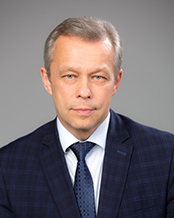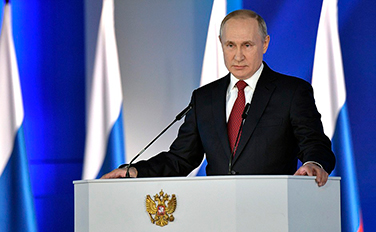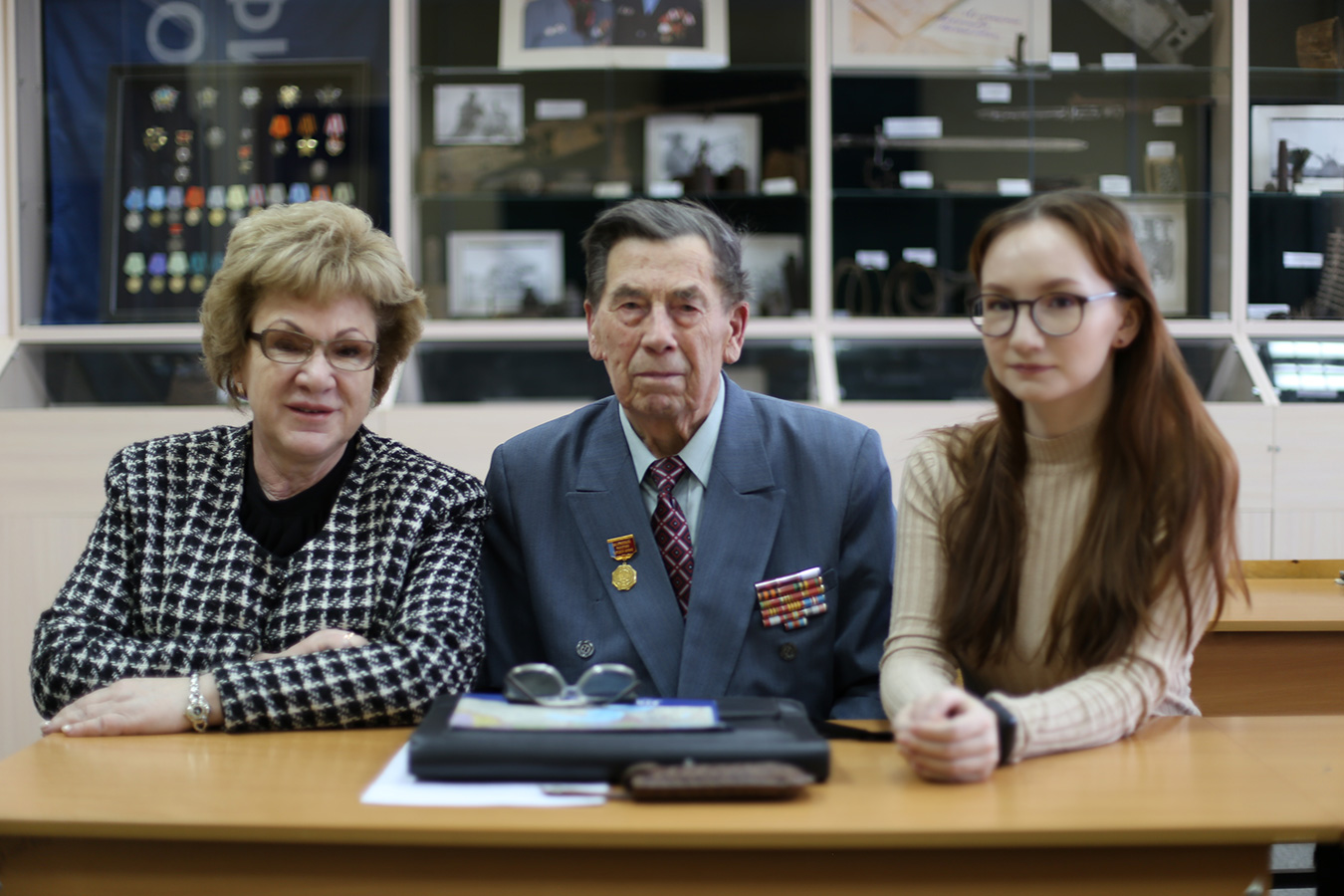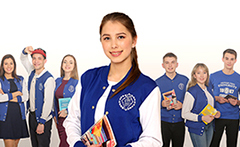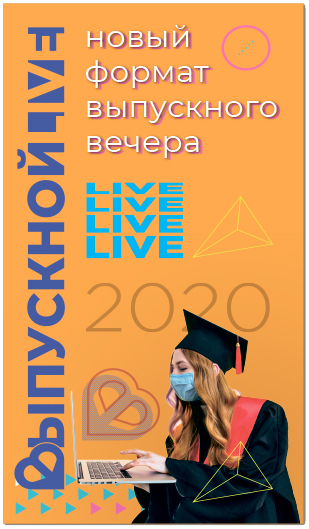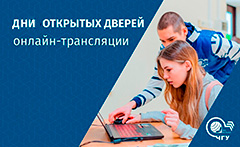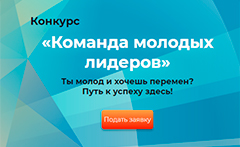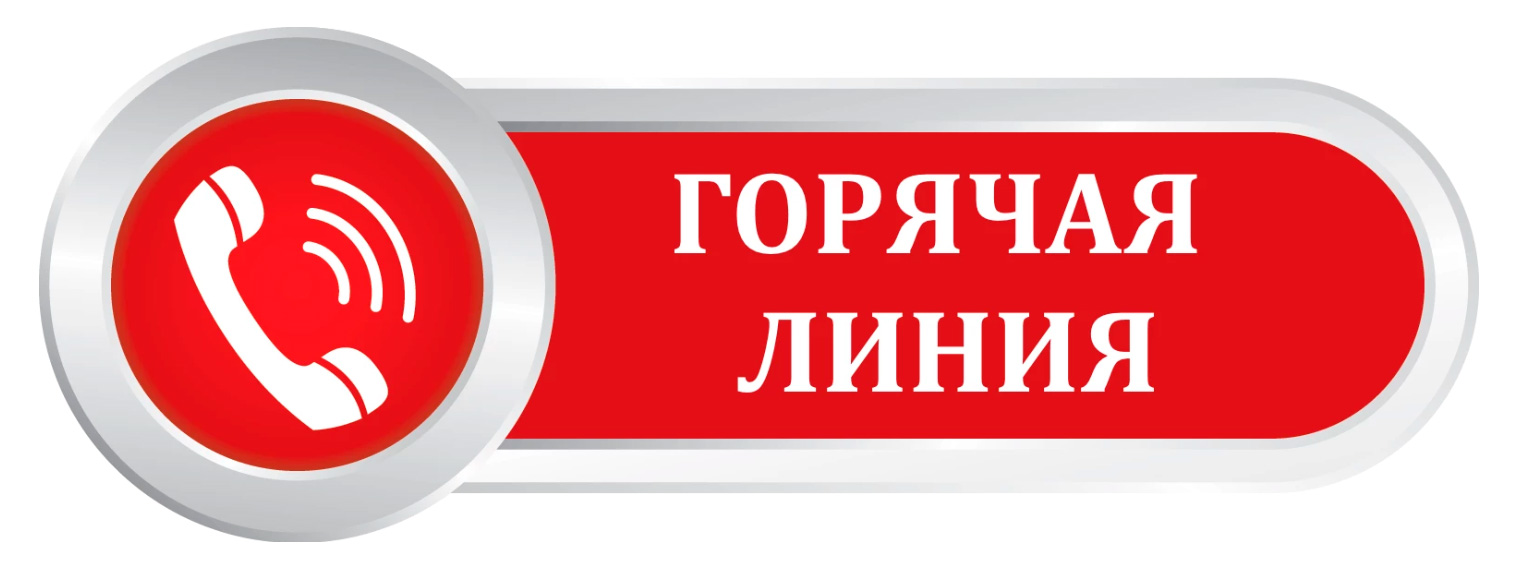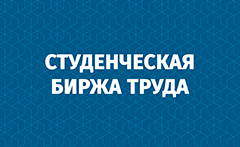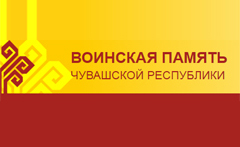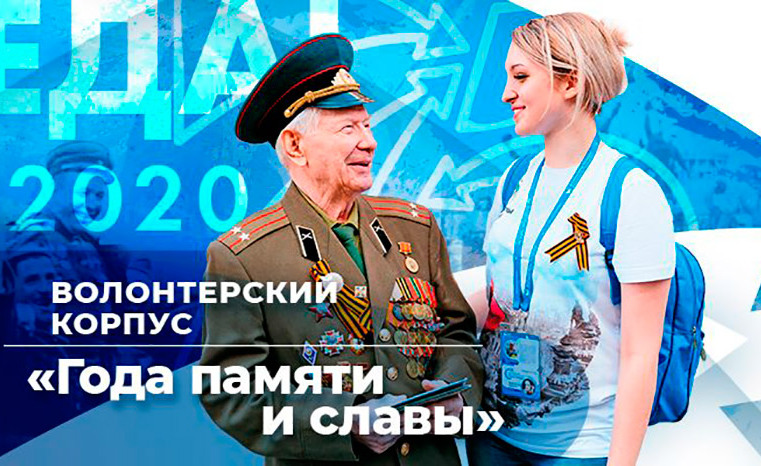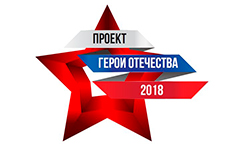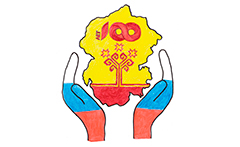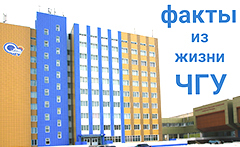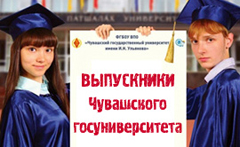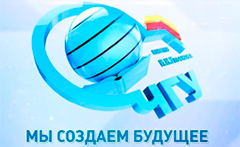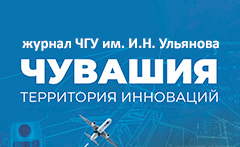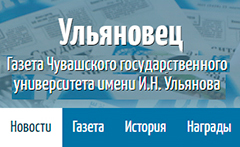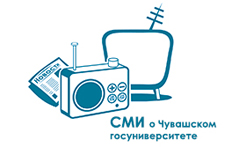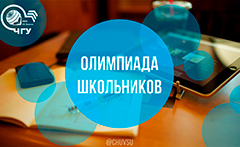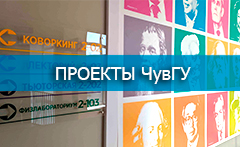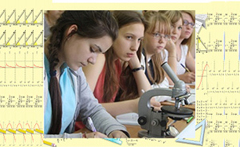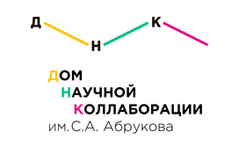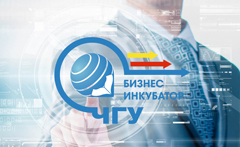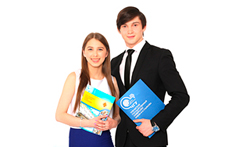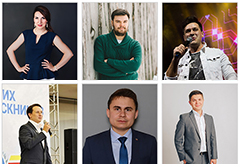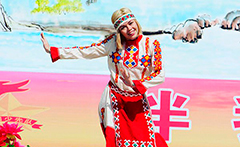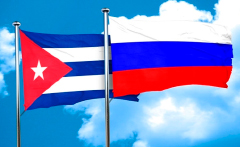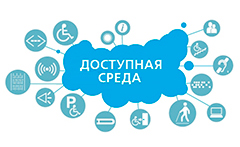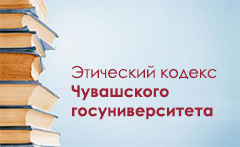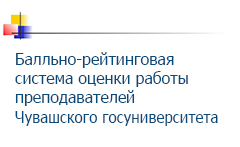|
|
Professor of the Chuvash State University T. N. Ivanova Is a Participant of the Open Air Marathon
Saturday, 02.05.20
Another guest of the open air marathon, organized by the Education Department of the Cheboksary administration, was Ivanova Tatyana Nikolaevna, Doctor of Historical Sciences, Professor of ChuvSU department of history and culture of foreign countries.
The theme of the meeting "Riddles in the History of Cheboksary" was revealed on the example of textbooks prepared in the framework of the project "My city". The team of authors prepared a whole series of textbooks on the history of Cheboksary. Thanks to them, acquaintance with the hometown for young Cheboksary residents begins at an early age. These educational publications will enable children to develop the sense of patriotism, pride, respect and love for the city where they live, as well as to feel a sense of belonging to its history.
Two textbooks have already been published and are used in school education. The first textbook "Travel in Cheboksary" performs a propaedeutic function, preparing children to learn the history of their native city. The material in it is given in an entertaining form, contains interesting facts about the capital, photos and drawings of its attractions. The second textbook "16 questions on the early history of Cheboksary" is designed for schoolchildren of the 7th grade and contains answers to many riddles, starting with the time of the dinosaurs.
Three more textbooks have been written and are ready for publication: "Historical novels about Cheboksary in the XVIII century" for the 8th grade, "Portraits of old Cheboksary" for the 9th grade, "My city: your legacy" for the 10th grade.
What are the mysteries of Cheboksary's history? This is the date of the first settlement on the site of Cheboksary and discussions about the events of 1469 and 1555. This is the mystery of the "Volga Atlantis", which hid the city of the XVIII century at the bottom of the Cheboksary Bay and the secret of the hoard of merchants Efremovs...
At the end of the lecture, Tatyana Nikolaevna invited students to the historical and geographical faculty of ChuvSU, where they will be able to participate in solving Cheboksary riddles themselves.
April, 29 Is the Day of State Symbols of the Chuvash Republic
Wednesday, 29.04.20
Today in our Republic the Day of state symbols of the Chuvash Republic is celebrated. On this day 28 years ago, on April 29, 1992, the deputies of the Supreme Council of the Chuvash Republic approved the regulations on the State emblem and State flag of the Chuvash Republic, the text of the National anthem of the Chuvash Republic.
State symbols of Chuvashia embody the centuries-old history of the Republic, spiritual unity and wisdom of the Chuvash people. They come laden with a great consolidating principle that unites all those who care about Chuvashia in their desire to preserve and increase the national heritage.
Elements of national ornament depicted on the flag and the coat of arms represent the traditions and the culture of the people, their worldview and outlook. The majestic melody of the anthem, reflecting the ideas of the connection of times and the experience of generations, the harmony and friendship of people of different nationalities, inspires creative work in the name of prosperity of the native Republic.
Respect for state symbols is an indicator of civic maturity, a high level of national consciousness, and the ability to think and act for the benefit of society's interests.
ChuvSU Students Took Part in the Action "Donor's Week»
Wednesday, 29.04.20
The Republican blood transfusion station resumed receiving those who decided to become a donor.
Now hospitals in Chuvashia do not experience a shortage of donor blood, but reserves need to be replenished daily.
Even during the period of self-isolation, when the blood service is not able to organize visits to enterprises.
Not long ago ChuvSU students came to donate blood, until the end of April the University announced the "Donor's Week".
For a student of ChuvSU civil engineering faculty, Daniil Kirillov, this is not the first procedure of donating blood. At nineteen, he's already been a blood donor twice.
- People need help, I still do not feel sorry. Here I decided to come to help, especially during the Donor's Week of ChuvSU. I saw that students of the faculty donate blood, there are people who are not indifferent, - shared a ChuvSU student, Daniil Kirillov.
The Chuvash State University joined the national donation campaign of mutual aid during the coronavirus pandemic . During the week, students come to the blood transfusion station by appointment.
The donor week at ChuvSU has been held since 2015, and each time more than 500 students participate in it. Now that the self-isolation regime has been declared and classes are held remotely at the University, there are significantly fewer people willing to donate blood, and security measures are much stricter.
- Simultaneously there can be not more than 5 persons and respectively during the previous 2 weeks they should have stayed in the Chuvash Republic and should not have the primary signs of ARVI - said the representative of ChuvSU volunteer center Anastasia Emelukova.
At the station, components are prepared from donated blood for further storage. 11 thousand liters of plasma should be prepared annually for Republican hospitals.
Donor blood and its components are used in the treatment of cancer patients, complex operations, including injuries and accidents, as well as in obstetric hospitals. Since the beginning of the campaign "Donor Week in ChuvSU", more than 30 students took part in it.
You can donate blood from the age of 18, and if your weight is not less than 50 kilograms. And, most importantly, the donor must be in good health. There are temporary contraindications for blood donation, such as a cold or vaccination, immediately after childbirth or tattooing.
But for certain diseases, blood donation is strictly prohibited. Contraindications for donors can be found on the website of the transfusion station.
Here at the station, necessary tests are performed and only after that the doctor will determine whether the donor is suitable for blood donation or not.
Today is the Day of the Chuvash Language
Saturday, 25.04.20
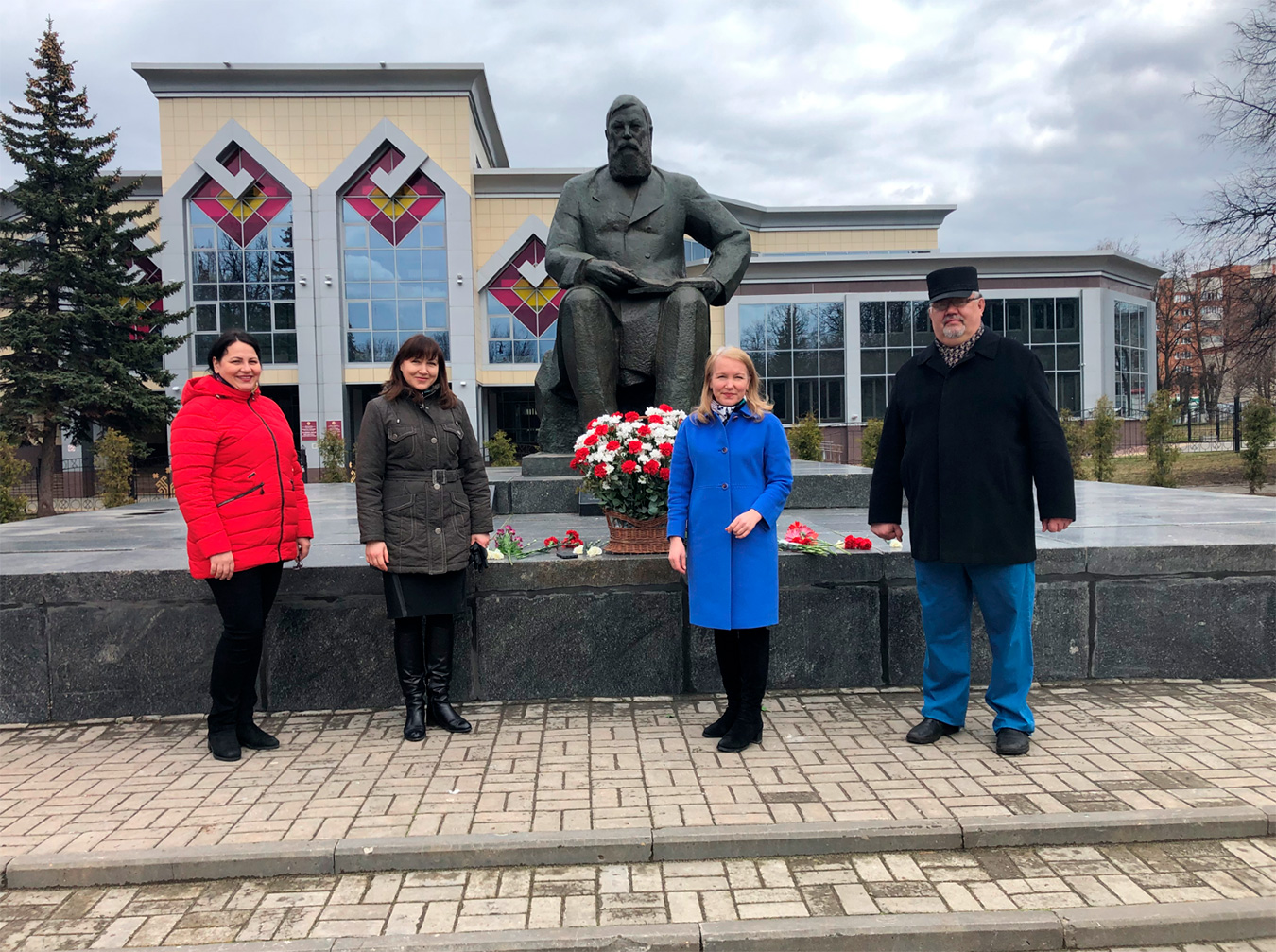
Today, on the day of the Chuvash language, the delegation of the Chuvash State University, consisting of the head of the Department for extracurricular work and security O. N. Viktorov, the Dean of the faculty of Russian and Chuvash Philology and Journalism A. M. Ivanova, associate professors O. G. Vladimirova and E. R. Yakimova laid flowers to the monument to the outstanding cultural figure and educator of the Chuvash people, the creator of modern Chuvash writing Ivan Yakovlevich Yakovlev.
REFERENCE:
April, 25 is celebrated annually as the Day of the Chuvash language. The holiday was established by the decree of the Presidium of the Supreme Council of the Chuvash Republic on April 9, 1992, in order to emphasize the identity and uniqueness of the language spoken by one of the many ethnic groups that make up Russia. The birthday of Ivan Yakovlevich Yakovlev, a famous linguist and educator who studied the Chuvash language and was the founder of the new Chuvash script was chosen as the date of celebration. The contribution of this person to the preservation of the Chuvash language is difficult to overestimate. He began his career as a philologist and educator being a high school student. In 1871, he and his associates created the Chuvash script based on the Russian alphabet, and soon the Chuvash A-B-C book was published. This contributed to the fact that publishing educational and fiction literature in the Chuvash language soon began. Working as an inspector of Chuvash schools in the Kazan district,as well as as an inspector of the Simbirsk Chuvash teacher's school, Yakovlev sought to introduce the Chuvash language training in local educational institutions, promote the language among young people, and train young teachers of the national language. The next changes in the Chuvash script were made in 1933, after Yakovlev's death.
The revival of interest in the culture of the peoples of Russia, as well as the growth of national consciousness that occurred in the early 1990s, led to the fact that in Chuvashia, the issue of preserving language identity and culture arose at the state level. It was then, in 1992, that the decision was made to establish a national holiday - the Day of the Chuvash language, celebrated in Chuvashia, as well as among the Chuvash living in other regions of the Russian Federation.
Opening of ChuvSU Project-Educative Intensive
Saturday, 25.04.20
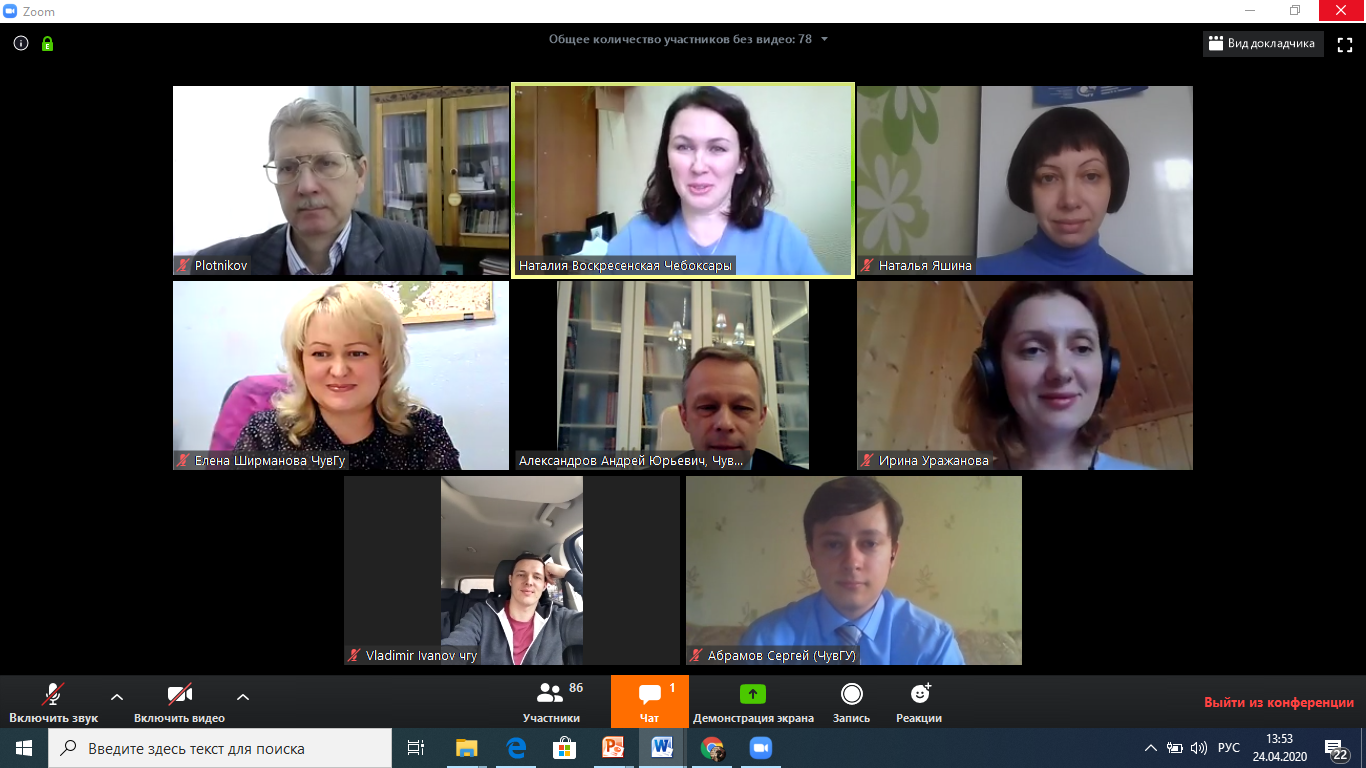
On April 24, ChuvSU opened a project and educative intensive in the form of an online meeting of all its participants.
Based on the results of the diagnostics carried out by the University 2035, 18 project teams were formed under the guidance of 17 mentors; the teams included 110 students from 9 faculties of our University.
What are the tasks of project-educative intensive courses?
What positive results can be achieved?
What will the intensive participants get as a result?
And what can we expect in the project track schedule for the next two months?
These and other questions were answered by the opening speakers: the rector of I. N. Ulianov Chuvash State University A. Yu. Aleksandrov, a coordinator of the University 2035 project I. S. Urazhanova, as well as the team of organizers of our intensive - a coordinator N. V. Voskresenskaya, the project manager S. V. Abramov, head of the business incubator V. V. Ivanov, the platform administrator A. A. Nazarov.
Andrey Yuryevich spoke about the importance of students' project activities, their advantages based on the results of participation in the intensive; he said that the best projects will be supported by ChuvSU Board of Trustees.
REFERENCE:
The intensive is attended by:
1. Faculty of Computer Science and Engineering (4 teams); also, students of this faculty take part in two more project teams.
2. Faculty of Mechanical Engineering (2 teams).
3. Faculty of Applied Mathematics, Physics and Information Technologies (2 teams).
4. Faculty of Radio Electronics and Automation (2 teams).
5. Civil Engineering Faculty (1 team).
6. Economics Faculty (4 teams).
7. Faculty of Management and Social Technologies (1 team).
8. Chemical and Pharmaceutical Faculty (1 team).
9. Faculty of the Russian and Chuvash Philology and Journalism (1 team).
ChuvSU Volunteers Rush to Help
Friday, 24.04.20
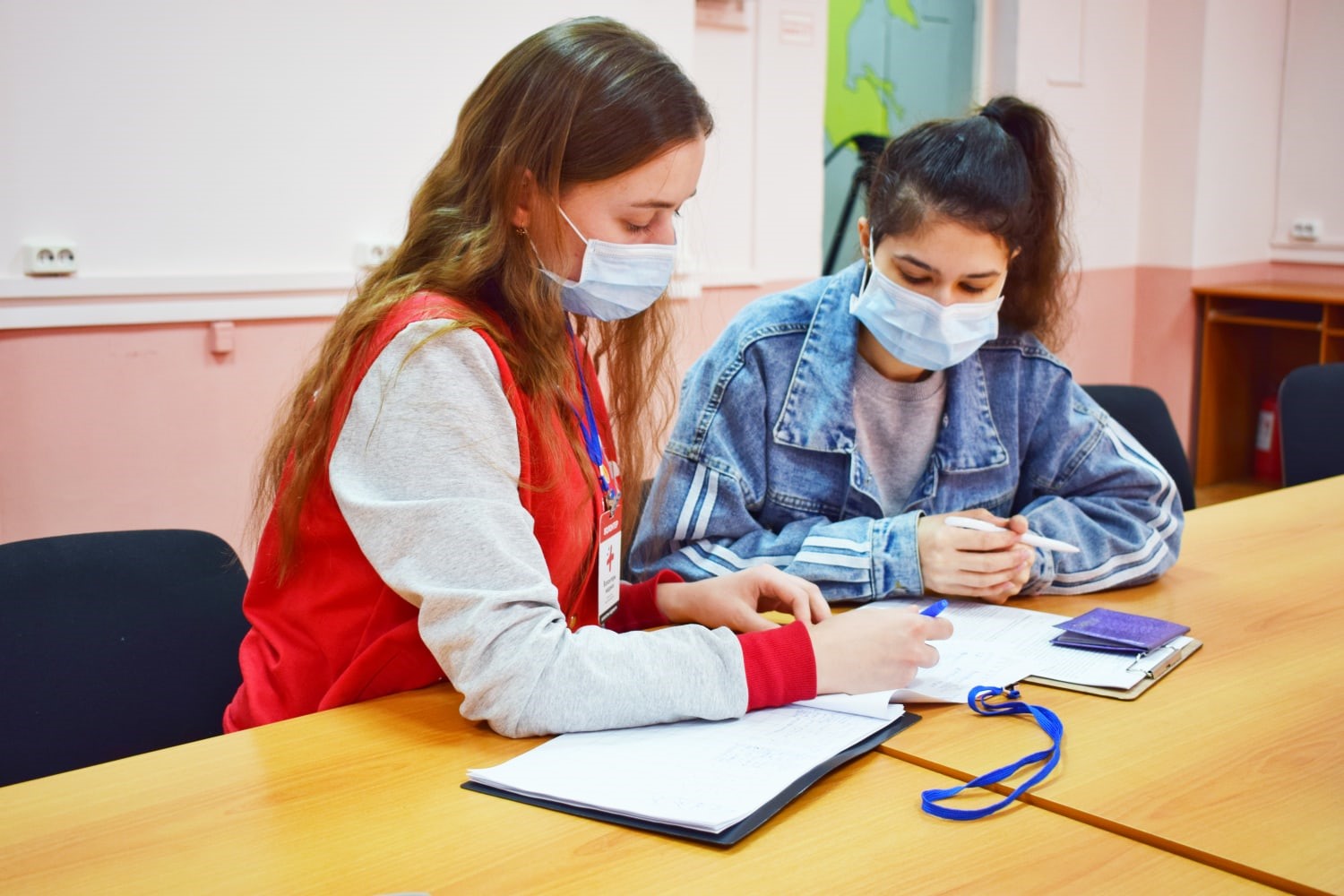
During the coronavirus pandemic, they help elderly teachers and residents of the Republic.
The volunteer center of I. N. Ulianov Chuvash State University has been involved in the process of helping the Republic on all fronts since the first days of the fight against coronavirus, having organized its work in the University itself.
Olga Semyonova, the chairperson of the Student Council of I. N. Ulyanov ChuvSU:"The first direction in which our student volunteers work is to help our teachers and employees aged 65+. There are about 300 of them. And since they are not allowed to go outside, our volunteers deliver food and medicines to their homes. This is a kind of mobile assistance team for elderly University employees.
For the safety of the team, ChuvSU organized checkpoints at the entrance to the buildings of the University, where medical students check the health of incoming people.
Another area of work of our students is participation in the All-Russian action of mutual assistance "We Are Together", which is attended by about 80 people. More than a dozen of our students also help in the city headquarters of volunteers.
477 residents of the medical faculty were sent to practice in medical institutions of the Chuvash Republic. They are at the disposal of the chief physicians, who can use them in their work at their discretion if necessary. All students have access to work. In addition, 211 students-volunteers of the medical faculty with access to work in the positions of secondary medical staff are ready to implement their knowledge and skills to help health workers in the region."
A volunteer, 4th year student of the medical faculty, specialty "General Medicine" of I. N. Ulianov ChuvSU Elena Antonova: "The work of our regional volunteer center "We Are Together" is divided into two blocks: the first group is those who work remotely: processes applications, sends them to work; the second group is those who directly fulfill these applications. I work in the first group, but sometimes I fulfill requests. The most frequent requests are to buy food at the store, pick up prescriptions for medicines at the hospital and bring them back.
On average, 5 applications are received per day, with a maximum of 14. Now there is an increase in their number. We work all over the Republic, and every municipality has our volunteer headquarters. The average age of applicants is 75 years, but some are older, for example, not long ago we provided assistance to elderly people aged 91 years.
As a rule, applications are received from single people or from those whose relatives live in other cities. Sometimes, they call from Moscow and ask to deliver products in the city of Cheboksary. This is basically how children take care of their parents. But it also happens vice versa. For example, on Monday, an application was received from a resident of Cheboksary, who asked to buy food for her son, a disabled person of group 2, who lives in Mariinsky Posad. The request will be completed.
We do not have the right to go to the apartments of the elderly, the maximum we can help with the housework is to throw out the garbage. But the volunteers are provided with all means of protection, including gloves, masks, alcohol wipes. Also, we were allocated two cars – "Kia Ceed" and "Lada XRAY" - to perform the work more quickly.
The round-the-clock phone number of the Volunteer center is 88002003411".
A volunteer, 5th year student of the faculty of medicine, specialty "Pediatrics" of I. N. Ulianov ChuvSU Alexander Egorov:"Personally, I have been on duty here, changing shifts, for 4 weeks in a row. We control the entrance to the main building of the University from 7: 30 to 17: 00, so that people with a high temperature do not pass through. If the thermal imager shows a body temperature above 35 degrees (on the forehead the temperature is different), then we do not let them in, but check them with an electric thermometer. If it shows already 37.2 degrees, then the entrance to the University is closed for this person. We treat the hans of all incoming with a special antiseptic solution.
After switching to distance learning, the flow of visitors has decreased, and now 100 people pass through us a day. These are only teachers and the staff, because students are not allowed to enter without a pass.
In the first week of non-working days, we actually found people with a high body temperature (37.5 maximum). Their data were recorded in a log and sent to the University's doctors, who decide where to send them next.
The first shift is from 7.30 to 9.30. One person stands at the back entrance (on the side of the dining room), two people are always on duty near the main entrance. The second shift lasts until 12.30. One person at this time stays near the dining room until 13.30. From 13.30 to 17.30, two people are at the main post. All the volunteers on duty at the entrances are students of the medical faculty.
We are all provided with masks, gloves, and medical gowns. We take our own temperature in the morning and before we leave. After all, we are subject to the same requirements as everyone else".
Alexey Evstifeyev, a volunteer, a 4th year student of the faculty of medicine, specialty "General Medicine" of I. N. Ulianov ChuvSU:"I deliver food, medicines and everything necessary to elderly teachers and University employees. Applications are sent directly to the head of the Volunteer center, and then processed and transmitted to me. I complete two requests a day and deliver the necessary items on public transport or on foot.
Teachers are surprised that we support them in such a difficult situation, they are pleased. It happens that we go to the same teacher twice a week: first we take food, then antiseptics.
We pass products near the doorstep because any contact is forbidden. We buy with our own money, and then our wards give in cash or transfer to a card, as a check is provided. We hear so many words of gratitude from our teachers!".
Valery Falkov: the System of Science and Education Should Be More Flexible
Wednesday, 22.04.20
Valery Falkov, Minister of science and higher education of the Russian Federation, took part in an online meeting with Andrey Volkov, Director of the SKOLKOVO Institute of public strategies, as part of "Antifragility 2020" project.
During the meeting, the speakers discussed the prospects for the development of higher education and science in the coming years, the "5-100" project and the program for the development of flagship universities, as well as the future of the distance format of higher education.
The minister of science and higher education Valery Falkov expressed hope that University students will start the new academic year traditionally - in September and in intramural form.
- The Ministry and universities are discussing different options and scenarios. But we miss so much live communication and are ready to move heaven and earth, that I would focus everyone on the fact that we will start the academic year on the first of September in the traditional form. We have grounds for cautious optimism, - the Minister said.
According to the Minister, higher school coped with the forced transition to distance learning. The universities that participated in the "Flagship Universities" program and the 5-100 Project adapted best.
- They were not only able to get their own educational activities going in the new conditions, but also became leaders, began to help others and learn from foreign experience, - said Valery Falkov. - By the way, there are no super-successful practices in adapting higher education systems to the conditions of coronavirus. Against this background, in my opinion, Russia looks very good.
According to the head of the Ministry of education and science, after the end of the coronavirus pandemic, full-time education will be more mixed, it will have more different digital technologies and online formats: "Full-time education, which existed before the coronavirus, and the one that will be after — are different entities. The system of science and education should be more flexible and respond quickly to changes".
In addition, the requirements to University teachers will change, since the quality of education depends directly on their digital competencies. "Today, it became clear overnight that if you can't organize collective work using online services and digital technologies, then this is critical", - the Minister said.
The team of the Economics Department of the Chuvash State University Won the Eurasian Student Olympiad "Accounting Around Us»
Thursday, 23.04.20
Russian Peoples' Friendship University (Moscow ) held the Eurasian Student Olympiad "Accounting Around Us". Its participants passed individual online testing on practical accounting in a commercial organization and completed a team homework on the topic "How to calculate the salary to the Tsar-father from the animated tale of V. Korostylev "Vovka in the Far-Off Kingdom" for his painting the fence?".
A team of students-accountants of ChuvSU economic faculty consisting of Victoria Gordeeva, Anastasia Yegorova, Olga Larionova, Marina Pavlova, Nina Filippova under the guidance of the senior teacher of taccounting and e-business department O. A. Romanova took the first place. In individual online testing, the third place was awarded to Anastasia Yegorova.
Congratulations to the team of the Economics faculty on their victory!
A Student of History and Geography Faculty Ksenia Kornyakova: "The Remote Format of Science Week Gave Us the Opportunity to Show the Results of Our Research"
Monday, 20.04.20
On the photo: T. N. Ivanova, a participant of the Great Patriotic war E. G. Belyaev and K. Kornyakova during the interview at the Museum of the Great Patriotic war of history and geography faculty. January 2020.
- Ksenia, we congratulate you with your victory in the section of "Science Week-2020». You distinguished yourself in the section that has a rather long title - "Modern problems of source studies and historiography. Creating oral history sources". What was it about?
- The section was organized for the first time. It was dedicated to a new and promising direction in historical science - oral history. The purpose of oral history is to record the recollections of eyewitnesses of historical events, conduct historical interviews with them, that is, to create oral history sources and their further study, which was the subject of many works presented in this section. This direction, in my opinion, is deservedly gaining popularity, as it gives the opportunity to highlight the most important periods in the history of ordinary participants of events. For example, there is an oral history department at MSU, and at ChuvSU on the basis of the research laboratory named after I. N. Ulianov - I. Ya. Yakovlev a center for oral history was founded. Now, under the guidance of Professor T. N. Ivanova of the Department of history and culture of foreign countries , several students work here, including me. We mainly collect memories about the Great Patriotic war and the "dashing" 1990s, while conducting interviews with completely different and interesting people. I think that the area for research will only expand in the future. Our center is becoming more remarkable. At the event dedicated to the Day of Russian science, we told about our center. In March, a competition "Living history: interview with a veteran" was organized jointly with the Student Research Society, where everyone could participate in the creation of oral history sources. The opening of the section on oral history was a natural phenomenon, and I hope that it will be included in the program of future conferences.
- Please tell us about your research.
- The topic of my research has the same long title as our section - "Creation of oral historical sources on the history of the events of the 1990s in the Chuvash Republic (on the example of the memoirs of veterans of military operations in the DRA)". It is directly related to the topic of my thesis. Oral history methods are effective for studying relatively recent events of the past, and, in my opinion, they are very well suited for studying such an ambiguous period in the history of Russia as the period of the 1990s. I had a clear criterion for sampling the respondents: participants in combat operations in Afghanistan (1979-1989). At the moment, there are many works that use the memories of Afghan veterans, but they are specifically about the war in Afghanistan. For my research, it was important to collect their memories of the 1990s, as Afghan veterans after returning from the DRA found themselves in the crisis of the early 1990s, and this information about that time, in my opinion, has a special value, as it enables to create a more detailed image of this period, which can not be seen, for example, in history textbooks.
- What is your personal experience of participating in scientific conferences and how do you assess their remote form?
- I took part in the conference for the first time when I was a 2nd year student. Since then, I have not missed the opportunity to speak at conferences "A Human Being. A Citizen. A Scientist" and in "Science Weeks". I also had the opportunity to take part in the conference at the Mari State University. This year I planned to speak at the conference "ArsHistoriae" in KFU. Unfortunately, it was postponed due to the epidemiological situation. When I found out that the All-Russian student conference at ChuvSU will be hold in a remote form, I was very glad. Naturally, a conference held remotely is different from a usual one. In this case, there was no direct communication with students, beginners and more experienced researchers, professors. The remote format of "Science Week" gave us the opportunity to show the results of our research.At the same time, the commission of specialists evaluated these works, as usual. The conference was a success. Our experience has shown that this format can be used in the future.
Anastasia Milovidova, a Student of the Chuvash State University, Won in the International Competition "Grandchildren of Victory. Leningrad"
Saturday, 18.04.20
A 2nd year student majoring in "Journalism" of the Chuvash State University Anastasia Milovidova became the winner of the International competition "Grandchildren of Victory. Leningrad" Anastasia is the only representative of the Chuvash Republic who was awarded with this honor. She passed a huge competition.
In St. Petersburg, in honor of the Great Victory's anniversary, the international meeting "Grandchildren of Victory" will be held (dates are being discussed). The event will bring together the best volunteers and descendants of the heroes who defended Leningrad.
In the Year of memory and glory, 50 descendants of the liberators of Leningrad and Victory Volunteers from both Russia and other countries will take part in commemorative events dedicated to the 75th anniversary of Victory in the Great Patriotic war. The participants will become co-organizers of the Victory Day celebration in St. Petersburg, they will talk to veterans and residents of the besieged Leningrad. This is a unique chance to say "thank you" in person and see the city that survived 872 days of the blockade. By the way, the medal "For the defense of Leningrad" was awarded to corporal Roman Filippovich Filippov - the brother of Anastasia Milovidova's great-grandfather.
It is not the first year that Anastasia has won competitions of the All-Russian public movement "Victory Volunteers". In 2019, she won the All-Russian competition "Ambassadors of Victory. Moscow", where she became a co-organizer of the Victory Parade and the movement of the Immortal Regiment in Moscow.
The Results of the All – Russian Olympiad of students "I Am a Professional" Were Summed Up: 11 of the 16 Prize-Winners, Winners and Medalists Are ChuvSU Students
Wednesday, 15.04.20
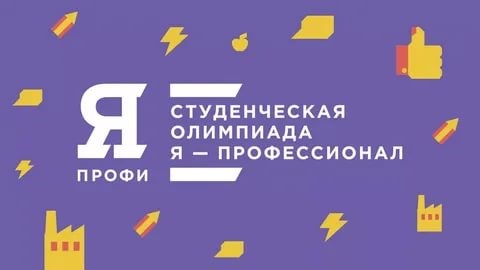
This year, the universities of Chuvashia have achieved a notable success at the All-Russian level: our Republic for the first time entered the top 30 regions following the results of the final round of the "I Am a Professional" Olympiad. Working with talents is one of the key areas of higher education development in the region and a constant part of the agenda of the Council of universities rectors of the Chuvash Republic, which is chaired by the rector of the Chuvash state University A. Yu. Aleksandrov. One of the indicators showing the effectiveness of this direction is participation of students in the large-scale practice – oriented Olympiad "I Am a Professional" – the flagship project of the presidential platform "Russia – the Country of Opportunities". The Olympiad is supported by the Ministry of science and higher education of the Russian Federation.
In this, the third season, there are two Olympic medalists in Chuvashia, one of them is studying at the Chuvash State University. A 4th year student of of energy and electrical engineering faculty Konstantin Grigoriev won a silver medal in the direction "Automation and Radioelectronics "and became the winner in the direction "Energy and Electrical Engineering". It should be noted that Konstantin took part in the qualifying stage of the Olympiad in 20 directions, and in 9 directions he passed to the final stage.
In total, 1247 ChuvSU students took part in the qualifying stage of the Olympiad in 60 different areas, 109 passed to the final stage, 12 of them passed a difficult selection for winter schools. As a result, our students won 12 diplomas of the Olympiad: we have 1 medal, 3 winners and 8 prize-holders!
This achievement of ChuvSU students is not accidental: the University successfully implements the project "Young Intellectuals", within which systematic work with talented children is built, starting from the school age. The head of the Center for work with gifted youth D. A. Troeshestova notes: "The management of our University in October set a task: to identify a number of breakthrough areas in which we can prepare prize-winners. As a result, we selected areas in the fields of energy, materials science, construction, linguistics, economics and dentistry. Together with the faculties, we made a grid of additional classes, and the results are clear: in all these areas, our students became winners of the "I Am a Professional" Olympiad! This once again shows that we need to work with talents, they do not come from anywhere, we grow them and create all the conditions for their development. Every gifted student has the opportunity to find a direction of interest at the University. We have mentors who train specialists who meet the most modern requirements."
The University undertook not only to prepare students for the stages of the Olympiad, but also paid for all participants to travel to the cities where the final rounds and winter schools were held. The young people visited universities in Moscow, Saint Petersburg, Novosibirsk, Sochi, Yekaterinburg, Kirov, Samara, Kazan, Nizhny Novgorod, Ulyanovsk and Yoshkar-Ola. Also, by the decision of the Rector's office, all students participating in the final rounds received an additional scholarship.
Show the Diversity of Cultures
Tuesday, 14.04.20
Organizers of the festival "Rhythms of the World" of the Chuvash State University announced the start of a new challenge. The participants shoot and upload videos of their country's national song or dance performance.
The first participants were:
- Ahmed Mortaja and Mohmaed Youssef (Egypt), 3rd-year students of medical faculty;
- Yara El Katou (Lebanon), a 1st year student of the medical faculty;
- May Mammetgulyeva (Turkmenistan), a 1st year student of the medical faculty;
- Liu Can Can (China), the Chinese language teacher;
- Daria Igolkina (Russia), a student of the 11th grade of school No. 6 of Cheboksary.
We invite students to take part in the challenge.
Make posts in Facebook, instagram and Vkontakte, and don't forget to put hashtags:
#ChuvSU
#Rhythms of the World 2020
#Rhythms of the World at Home
Shoot and upload videos with the performance of a national song or dance of your country.f Or maybe it will be a poem in the native language .
Put it on Instagram, Facebook and VKontakte and don't forget to put hashtags:
#ChuvSU
#Rhythms of the World 2020
#Rhythms of the World at Home
REFERENCE:
In 2016, I. N. Ulianov Chuvash State University launched the project "Dialogue of Languages and Cultures", which was aimed at adapting foreign students in educational organizations of the Chuvash Republic. The Council of foreign students was established, which annually holds the festival of peoples' friendship "Rhythms of the World".
Festival of intercultural dialogue "Rhythms of the World" is one of the ways of youth education in the spirit of international friendship where representatives of different countries and peoples of the world who are studying in educational institutions of the Chuvash Republic, in an accessible and creative way present cultural-historical features of their country, acquaint the participants with peculiarities of their language and culture, in a simple and accessible manner teach to cook traditional national dishes according to the original recipe.
"The Rhythms of the World" festival opens with an ethnographic exhibition of countries and a gastronomic presentation of cultures, where foreign students present the history and culture of their country, treat with traditional dishes, and the guests have the opportunity to view decorative and applied arts, national jewelry, shoes, and clothing. Next, the exhibition hosts a presentation-defile of national costumes, the guests have the opportunity to see live the peculiarity and uniqueness of the peoples of the world. Then the festival continues with an international concert, where creative performances (vocal, instrumental, choreographic) of collectives are presented, which are aimed at preserving and developing traditions and cultural accessibility.
The Rector of the Chuvash State University A. Yu. Aleksandrov on the Impact of Distance Learning on the Educational Process
Monday, 13.04.20
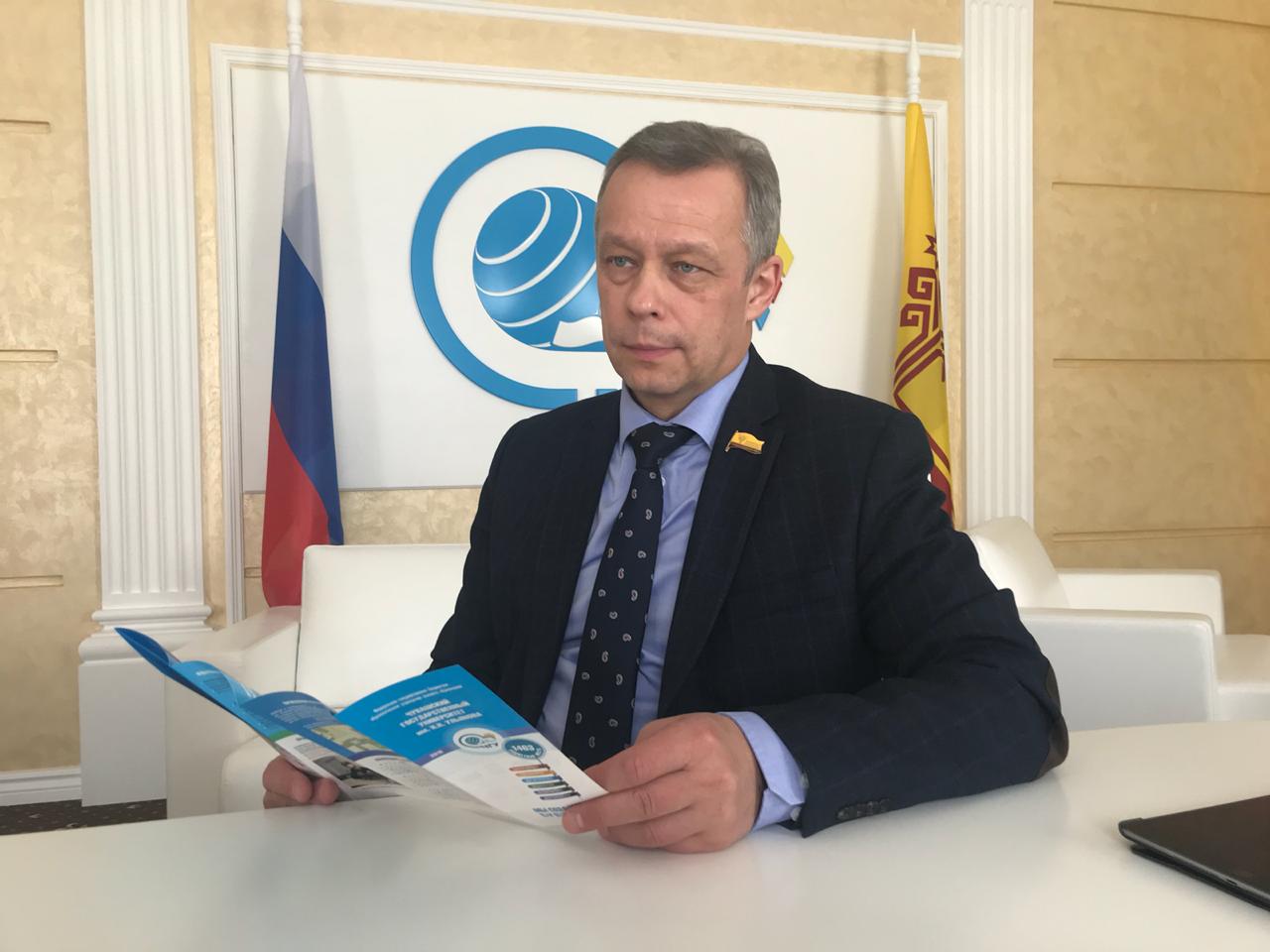
For many weeks now, the University buildings are unusually quiet: students, teachers and employees of ChuvSU study and work remotely from home. How will the distance learning format affect the educational process in general, shares the rector of the Chuvash State University A. Yu. Aleksandrov.
- Andrey Yuryevich, today, when ChuvSU, like all Russian universities, switched to distance learning, many began to wonder whether it is possible in the near future to organize the educational process remotely for example for part-time students. It is often difficult to leave work, for example, in Moscow, to come to pass an exaamination session in Cheboksary.
- Over the past years, the University has been using elements of distance education technologies, the so-called mixed learning. In addition, the work on digital transformation of the educational and business processes of our University is being carried out at a high pace. The current situation in the country's education system enabled us, as well as other universities, to test the full distance format and more accurately assess our opportunities. Monitoring the implementation of the educational process and analyzing the data obtained allows us to conclude that the Chuvash State University is quite ready to offer distance learning to part-time students in a number of training areas .
- Now courses on online platforms, such as Coursera, have become especially popular. Do you think that you can somehow use the certificates obtained for such courses in offline training of students?
- We not only think, but also provide such an opportunity for students. Our University has developed and approved a Regulation on the offset basing on the results of open online courses, which establishes the procedure for resetting the results of open online courses. By the way, more and more courses are appearing on the National open education platform, created in our country a few years ago.
- Does our University plan to develop its own online courses for placement on such platforms?
- A number of such courses have already been prepared by our teachers. And in 2020, it is planned to create a media studio "University: visualization" to record the online content of the University. This media-studio will allow University teachers to present their educational materials in the format of online educational courses, high-quality videos, etc.
- What remote technologies can be "registered" in the traditional curriculum for full-time students?
- Let's start with the fact that full-time education is a unique atmosphere that involves direct contact, instant feedback from the teacher, giving you the opportunity to conduct a dialogue and to discuss, to immerse yourself in the educational environment and to get the most useful. That's what it's good for. No doubt, communication with group-mates is extremely important as well, which increases the effect of training, because a common goal and a healthy competition motivate students to high concentration and dedication.
Keeping the traditional full-time form of education, but also using distance learning technologies, we can expand the opportunities of presenting and transmitting educational information through online lectures and consultations on the webinar platform of the University, as well as to offer technologies for storing and processing educational information.
Online Meeting of the Council of Chuvashia Universities Rectors
Friday, 10.04.20
On April 10, a meeting of the Council of rectors of the Chuvash Republic universities was held with the participation of the Minister of education and youth policy of the Chuvash Republic S. P. Yakovlev. In connection with the epidemic situation of coronavirus infection, the meeting was held in video conferencing mode using the ZOOM service. It was conducted by the Chairman of the Council of universities rectors of the Chuvash Republic, the rector of I. N. Ulianov Chuvash State University A. Yu. Aleksandrov.
At the meeting, the Minister of education and youth policy of the Chuvash Republic S. P. Yakovlev was introduced into the Council of universities rectors of the Chuvash Republic by a unanimous decision.
The report "About the proposals of the Council of universities rectors of the Chuvash Republic to the draft Programme of socio-economic development of the Chuvash Republic" was made by the Chairman of the Council of universities rectors of the Chuvash Republic, ChuvSU Rector A. Yu. Aleksandrov. It was decided to approve the proposals of the Council of universities rectors of the Chuvash Republic to the draft Program of socio-economic development of the Chuvash Republic and send them to the Ministry of education and youth policy of the Chuvash Republic.
The activities carried out by higher education institutions of the Republic to reduce the spread of coronavirus were covered by the Vice-rector for general affairs of the Chuvash State University S. V. . Tasakov.
The speech of the chief of ChuvSU educational-methodical administration office M. Yu. Mitrofanova was dedicated to the transition of universities in Chuvashia to distance learning. Members of the Council recommended that universities located in the Republic improve the mechanism for conducting training sessions using e-learning and distance learning technologies; develop a mechanism for conducting state final certification procedures in universities using distance learning technologies and implementing proctoring elements; update local acts related to educational activities using e-learning and distance learning technologies, including intermediate and final certification.
The chief researcher of the Chuvash State Institute of Humanities Professor I. I. Boyko reported on the state of anti-corruption work in higher education institutions. The heads of educational institutions of higher education were recommended to carry out monitoring by an anonymous survey of students after the winter examination session, as well as among those who intend to enter higher education institutions after their enrollment and to report the results of the survey at the next meeting.
The report of the head of ChuvSU department for extracurricular work and security O. N. Viktorov was devoted to the problems of patriotic education of young people. It was decided to strengthen the work on patriotic education of young people at universities, using various forms and methods of work; to sign cooperation agreements with the All-Russian public movement "Victory Volunteers" in the Year of memory and glory; to take an active part in the "Dictation of Victory".
The First "Digital Footprint" of the Chuvash State University
Thursday, 09.04.20
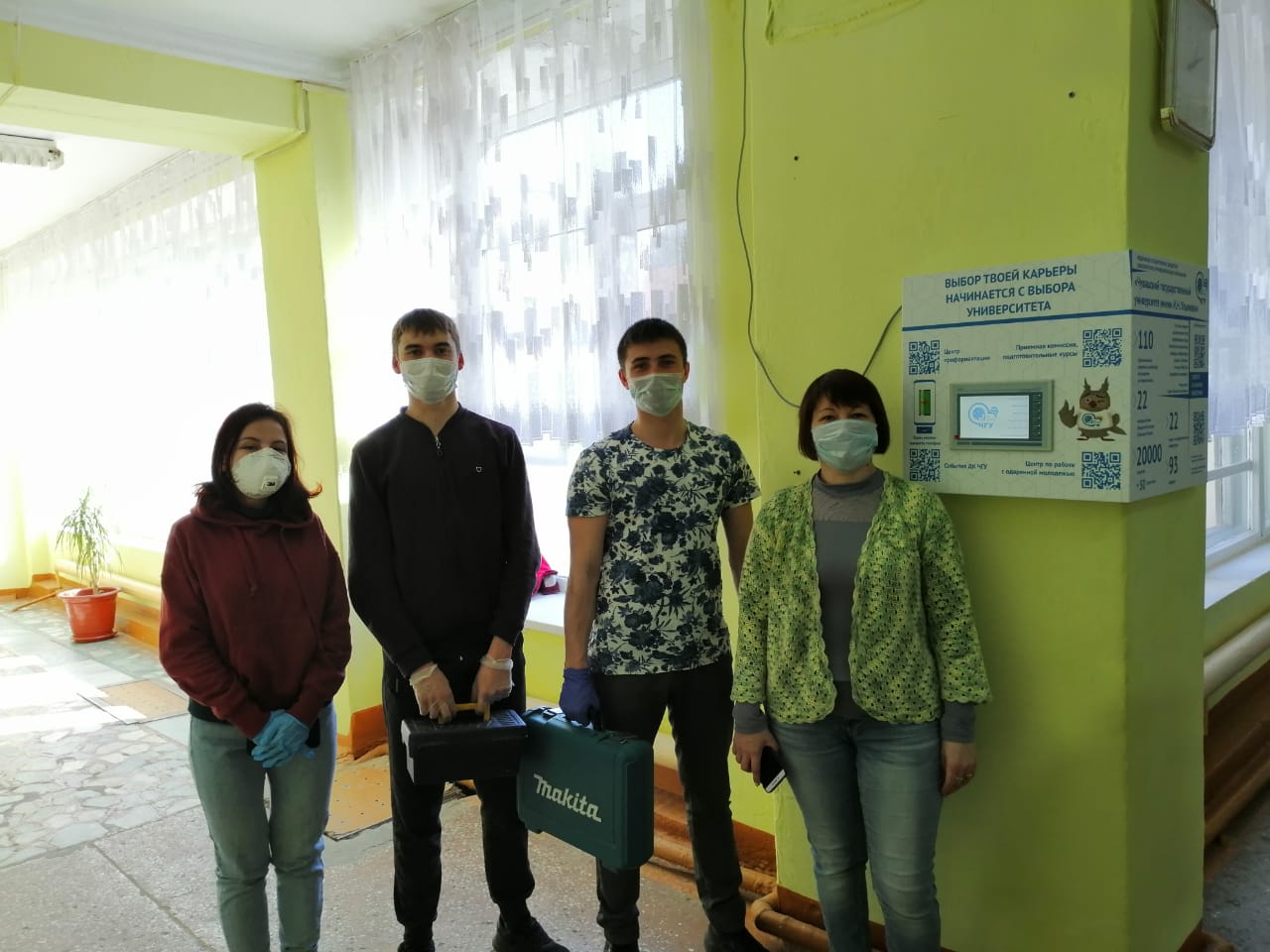
On the 7th of April on the territory of secondary school № 11 of Novocheboksarsk the first ChuvSU vocational guidance terminal started to function. It was made by participants of the student design bureau "Energoavtomatika", third-year students of energy and electrical engineering faculty Anastasia Dobrova, Nikolai Andrianov, Roman Romanov under the guidance of associate professor, Candidate of technical Sciences A. G. Kalinin. As the young people told, they spent a month creating the design and software application of the future product, consulting support for the authors of the project was provided by the career guidance center, Admissions Board, the center for work with gifted youth, the Palace of culture, employees of the project management department, Director of secondary school № 11 L. N. Kirillova.
The idea of creating such a terminal did not arise by chance: an intellectual heat node developed by our University's partner NGO "CASCADE GROUP" has been operating in the University's laboratory building "B" for more than two years .
The basis of the school career guidance panel is an industrial touch controller that enables to interact with the equipment without a keyboard and a mouse. The terminal demonstrates the functioning of a mathematical model of school heating. In the future, during planned maintenance of the school heating system, the terminal will be connected to a" digital colleague " in the school's heat node to display a detailed picture and the amount of energy savings. In addition, the stand is equipped with various ways to "communicate" with electrical equipment according to industrial communication standards.
In their creative search, students developed their own system of symbols for traveling by the career guidance map, uploaded simple mathematical test tasks, and information about the faculties of our University. At the beginning of the work, the terminal demonstrates the instructions of the school director L. N. Kirillova and the ChuvSU Rector A. Yu. Aleksandrov.
The authors of the project tell: "It was more difficult to write tyhe source code and a graphic project for school children than for engineers. We had to enter a lot of different explanatory details. We now know for sure that any application downloaded, for example, to a phone is a huge work of the developer, which should be appreciated regardless of the volume and quality of this application."
So, the career guidance terminal will become a clear example of student work for schoolchildren, opening the doors to the field of digital energy and arousing their interest in technical specialties.
REFERENCE:
When studying the discipline "Automation of Technological Processes" in the 3rd year of energy and electrical engineering faculty, students master techniques for working with samples of industrial computers and screens. The international standard IEC (IEC) 61131-3 "Programmablecontrollers. Programminglanguages"is studied. Students consolidate their classical programming skills in various ways of interacting hardware with humans. The standard is mandatory for study in universities, its sections are widely used in the automation of substations produced by enterprises of Chuvashia, as well as in machines, transport, robotic conveyors and other objects with partial or complete replacement of human participation.
The standard was first introduced in 1993 by the International Electrotechnical Commission (IEC), a non - profit organization for standardization in the field of electrical, electronic and related technologies.
|
|
|
|
В ЧГУ им. И.Н. Ульянова начала работу «горячая линия» для абитуриентов. 8-800-550-79-88
(звонок бесплатный) специалисты приемной комиссии будут консультировать поступающих и родителей.
8 (8352) 45-20-27 (по вопросам дистанционного обучения) |
|

